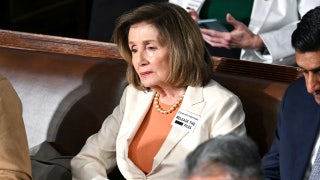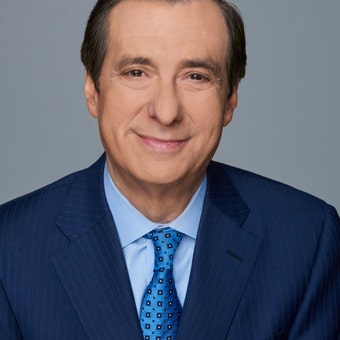Sen. Rand Paul: Trump impeachment trial 'dead on arrival' in Senate
Kentucky Republican joins 'Fox News Primetime' to discuss his objection to the 'unconstitutional' Trump impeachment.
The Trump impeachment campaign is essentially toast.
Any flickering hope among Democrats to convict private citizen Donald Trump died when 45 of the 50 Senate Republicans voted that the entire proceeding is unconstitutional.
It was obvious to anyone who knows Washington that the impeachment drive would start running out of steam at noon on Jan. 20. It was too easy, even for Republicans with serious doubts about Trump’s conduct, to say there was no point in convicting someone who now lives at Mar-a-Lago. It always loomed as the perfect exit ramp.
And now we know that is the overwhelming position of the Republican Party. When Rand Paul made a motion Tuesday that the Trump trial should be deemed unconstitutional, all but five of his GOP colleagues agreed. The only defectors--Mitt Romney, Lisa Murkowski, Ben Sasse, Pat Toomey and Susan Collins--were predictable. Forget about getting 17 Republicans to vote for conviction; they couldn’t even get to double digits on a procedural vote.
President Biden was obviously right when he said, before that vote, that the Republicans would never provide the needed two-thirds majority.
Among those voting to toss out the trial: Mitch McConnell. Right, the same McConnell who has twice accused Trump of inciting the violence at the Capitol, and privately signaled he would be open to a conviction. The press described his motivation as wanting to move the party beyond the Trump brand by barring the former president from running again in 2024.
BIDEN SHIFTS ON VACCINE UNDER PRESSURE FROM ... THE MEDIA
But the minority leader has an innate feel for political currents on the Hill. He knows his comments didn’t trigger a stampede, and undoubtedly sees no point in leading a charge with few troops behind him.
The Paul argument that trying Trump would be unconstitutional seems a rather weak one, if only because the Senate has done it before. In the long-forgotten case of William Belknap, Ulysses Grant’s secretary of war, ran to the White House in 1876 and resigned in tears just before a House impeachment vote. The House went ahead anyway, and the Senate convicted Belknap even though he had left office. Chuck Schumer is among those who have made that point.
The real problem in a trial that Paul called "deranged" is the lack of political urgency. In the public mind, impeachment is about booting corrupt or dangerous officials. In this case, voters already sent Trump packing--albeit after months of legal battles over whether the election was rigged.
I get the counterargument that Trump must be held accountable for whipping up the people who stormed the Capitol. But I think he has been, in the court of public opinion, as even many Republican officials and ex-aides have criticized his conduct.
And yes, McConnell could have launched the trial when Trump was still in office rather than stalling. But the House’s one-day impeachment took place with exactly one week left in the Trump presidency. A rushed trial would have looked unfair to tens of millions of Trump supporters, and the same logic would have applied: Why convict someone who is days away from leaving Washington?
Some Democrats, such as Tim Kaine, are urging a censure vote instead. And everyone knows the spectacle will complicate Biden’s efforts to bring the pandemic under control.
SUBSCRIBE TO HOWIE'S MEDIA BUZZMETER PODCAST, A RIFF OF THE DAY'S HOTTEST STORIES
When the impeachment trial takes place in less than two weeks, there will be impassioned speeches, saturation media coverage and talk that democracy is at stake. It will be grand political theater.
But the proceedings will share the central reality of the first impeachment trial: the outcome is preordained. And Donald Trump, private citizen, will be able to declare victory.










































